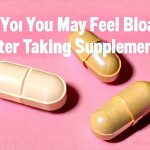The pursuit of optimal health and performance often leads individuals down paths involving supplementation. A burgeoning market caters to every conceivable need—from enhanced energy levels to improved gut health—with promises of unlocking our full potential. However, the eagerness to optimize can sometimes backfire, particularly when it comes to substances impacting the gastrointestinal system. Many popular supplements, while marketed for their beneficial properties, can inadvertently trigger uncomfortable and disruptive cramping, especially with overuse or improper application. This isn’t necessarily a sign of a ‘bad’ supplement, but rather an indication that individual gut sensitivities, dosage levels, and synergistic interactions between various compounds are often underestimated and poorly understood by both consumers and even some practitioners.
The complexity arises from the intricate nature of the human gut microbiome – a vast ecosystem where billions of microorganisms reside. Supplementation can disrupt this delicate balance, leading to inflammation, altered motility (the movement of food through the digestive tract), and ultimately, cramping. Understanding why these cramps occur requires delving into specific supplement categories known for their gut-triggering potential, recognizing individual sensitivities, and adopting a more mindful approach to supplementation. It’s crucial to remember that what works wonderfully for one person can cause significant distress in another; personalized approaches are almost always necessary.
The Role of Magnesium & Electrolytes
Magnesium is frequently touted as a miracle mineral, with benefits spanning muscle relaxation, nerve function, and even sleep quality. Several forms exist – magnesium citrate, oxide, glycinate, and chloride being among the most common—and it’s often used to address deficiencies or enhance athletic performance. However, magnesium citrate, in particular, is well-known for its potential to induce diarrhea and cramping, especially at higher doses. This is due to its osmotic effect – meaning it draws water into the intestines, softening stool and accelerating bowel movements. While this can be beneficial for constipation relief, excessive use or sensitivity can lead to uncomfortable abdominal distress. Electrolyte imbalances, often addressed with supplements containing sodium, potassium, and magnesium, can also contribute. Rapid rehydration after intense exercise, coupled with high doses of electrolytes, can overwhelm the digestive system’s capacity for absorption, leading to cramping and gastrointestinal upset.
The issue isn’t necessarily the supplements themselves but how they interact with individual physiology. Those with pre-existing gut conditions like Irritable Bowel Syndrome (IBS) or Crohn’s disease are particularly vulnerable. Furthermore, combining multiple electrolyte supplements—or taking them alongside other gut-active compounds—can create a cumulative effect, increasing the risk of cramping. It’s vital to consider bioavailability – how well your body absorbs and utilizes these minerals. Magnesium glycinate and chloride generally offer better absorption with less gastrointestinal distress compared to citrate or oxide, but individual responses still vary significantly. Supplementing electrolytes should be targeted towards actual deficits identified through testing (like sweat analysis) or demonstrable need (e.g., post-exercise recovery in hot weather), rather than a blanket approach. Key takeaways from tracking digestive data over time can help you understand your body’s needs.
Finally, remember that many foods are naturally rich in magnesium and electrolytes. Prioritizing a balanced diet can often negate the need for supplementation altogether. If supplementation is necessary, starting with low doses and gradually increasing while monitoring your body’s response is always recommended. Staying adequately hydrated throughout the day also supports optimal electrolyte balance and reduces the likelihood of cramping. How Your Gut Reacts to Overuse of Antacids can affect your body’s ability to absorb nutrients, including electrolytes.
Fiber Supplements & Gut Disruption
Fiber supplements—psyllium husk, methylcellulose, inulin, acacia fiber—are incredibly popular for promoting regularity and supporting gut health. They work by adding bulk to stool, aiding in bowel movements, and potentially feeding beneficial gut bacteria (prebiotic effect). However, a sudden increase in fiber intake or the use of high doses can paradoxically cause bloating, gas, and cramping. This is often due to fermentation – when gut microbes break down undigested fiber. While fermentation produces short-chain fatty acids (SCFAs) beneficial for gut health, excessive fermentation creates gas, leading to discomfort. Inulin, specifically, is notorious for causing these effects in sensitive individuals because it’s a highly fermentable fiber.
The type of fiber also matters significantly. Soluble fiber absorbs water and forms a gel-like substance, while insoluble fiber adds bulk without absorbing much water. A balance between the two is ideal, but an overreliance on one or the other can disrupt digestive function. Rapid increases in fiber intake are often the biggest culprit behind cramping. The gut microbiome needs time to adapt to increased fiber consumption; otherwise, fermentation occurs rapidly and excessively. Furthermore, individuals with SIBO (Small Intestinal Bacterial Overgrowth) may struggle with fiber supplements because they already have an overabundance of bacteria fermenting carbohydrates in the wrong place – adding more fuel to the fire can exacerbate symptoms. Benefits of Enzyme Supplements for Digestive Disorders may help with fiber digestion.
Introducing fiber gradually is key—start with small amounts and slowly increase intake over several weeks, observing your body’s response. Drinking plenty of water alongside fiber supplementation is also crucial, as water helps move fiber through the digestive tract and prevents constipation. Listen to your body; if cramping or bloating occurs, reduce the dose or switch to a different type of fiber.
Identifying Your Triggers
Pinpointing the specific supplements causing cramps requires careful self-observation and potentially professional guidance. Maintaining a detailed symptom journal is an excellent starting point. Record:
1. What supplements you’re taking, including dosage and timing.
2. What you ate that day, noting any potential food sensitivities.
3. The specific symptoms experienced (cramping location, intensity, duration).
4. Any correlating factors – stress levels, exercise intensity, sleep quality.
This journal allows you to identify patterns and correlations between supplement use and symptom onset. For example, you might notice that cramps consistently occur within an hour of taking magnesium citrate or after consuming a large dose of inulin fiber. Elimination diets can also be helpful; temporarily removing suspected supplements from your routine for several weeks and then reintroducing them one at a time allows you to determine which ones are triggering symptoms. Recognizing the Signs of Liver Toxicity from Supplements is also important when introducing new supplements.
However, self-diagnosis can be inaccurate. Consulting with a registered dietitian or functional medicine practitioner experienced in gut health is invaluable. They can help identify underlying gut issues like SIBO, food intolerances, or enzyme deficiencies that may contribute to cramping and guide you towards appropriate supplementation strategies. They can also recommend testing – stool analysis, breath tests for SIBO, or food sensitivity testing—to gain a deeper understanding of your digestive health. Supplements That Protect Pancreas from Oxidative Damage can support overall digestive function.
Dosage & Timing Considerations
Dosage is arguably the most critical factor when it comes to preventing supplement-induced cramping. Always start with the lowest recommended dose and gradually increase only if necessary, paying close attention to your body’s response. The “more is better” mentality rarely applies to supplementation; in fact, exceeding the recommended dosage often increases the risk of side effects without providing additional benefits.
Timing also plays a role. Taking supplements on an empty stomach can sometimes exacerbate gastrointestinal distress because they may not be buffered by food. Conversely, taking them with meals can slow down absorption or interfere with nutrient uptake. Experiment to find what works best for you. For example, magnesium glycinate is often better tolerated when taken with food, while electrolytes are most effective when consumed around exercise.
Consider the synergistic effects of combining multiple supplements. Certain combinations can amplify each other’s impact on the gut. For instance, combining a high dose of magnesium citrate with a fiber supplement could significantly increase the risk of diarrhea and cramping. Reading labels carefully and understanding potential interactions is essential. How Your Gut Reacts to Overuse of Antacids highlights how even seemingly harmless medications can impact gut health.
Supporting Gut Health Long-Term
Supplementation should be viewed as an adjunct to—not a replacement for—a healthy lifestyle. Prioritizing a balanced diet rich in whole, unprocessed foods provides the foundation for optimal gut health. Focus on including:
– Fermented foods (yogurt, kefir, sauerkraut) to support beneficial bacteria.
– Prebiotic-rich foods (garlic, onions, bananas) to feed those bacteria.
– Anti-inflammatory foods (berries, fatty fish, leafy greens) to reduce inflammation.
Managing stress levels is also crucial, as chronic stress can negatively impact gut function. Incorporating stress-reducing practices like meditation, yoga, or deep breathing exercises can help restore balance. Adequate hydration is non-negotiable; water supports digestion, nutrient absorption, and bowel regularity. Recognizing the Signs of Liver Damage from OTC Medications reminds us to be cautious with all ingested substances.
Finally, remember that everyone’s gut microbiome is unique. What works for one person may not work for another. The key to preventing supplement-induced cramping lies in personalized approaches, mindful supplementation practices, and a commitment to long-term gut health strategies. Listen to your body, seek professional guidance when needed, and prioritize holistic well-being over quick fixes or miracle cures. Key takeaways from tracking digestive data over time can help you personalize these strategies.


















